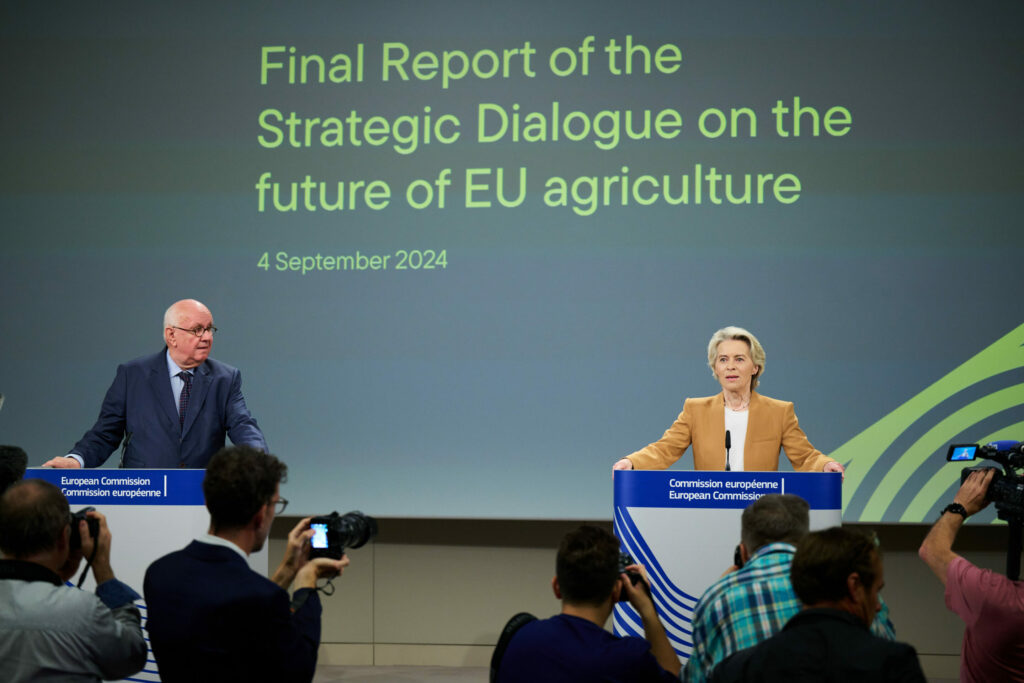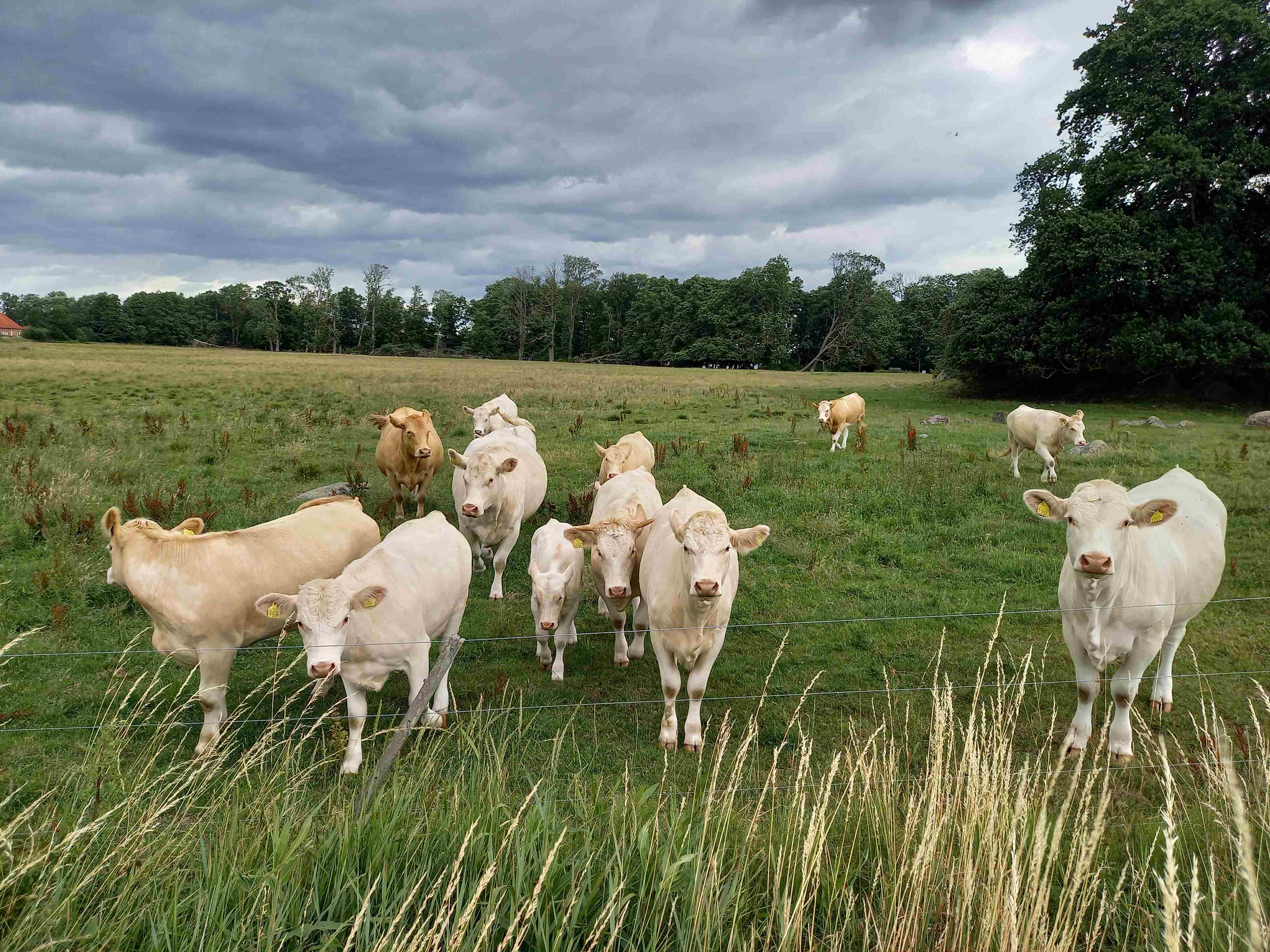The campaign for appointing a European Commissioner with responsibility for animal welfare in the EU is gaining traction among MEPs in the European Parliament following the recent report on the strategic dialogue on the future of agriculture in the EU.
On the same day as the report was published (4 September), a webinar organized by The Brussels Times together with GAIA – Belgium's leading animal rights organisation – was live-streamed from the Parliament. MEPs across the political spectrum advocated that more relevance and visibility should be given to animal welfare by appointing a dedicated Commissioner for this policy area.
A dedicated Commissioner would ensure that animal welfare will not fall between the cracks. The Commissioner will take a holistic view and promote progressive animal welfare legislation for the benefit of all animals: farmed animals, companion animals and wild animals. It sends a strong signal and will responsibilize someone in the Commission to ensure that existing and new legislation is enforced.
The idea is that this responsibility should be explicit in the name of the relevant Directorate-General and the job title of the competent Commissioner. The Commission’s Directorate-General for Health and Food Safety, which already hosts a unit for animal welfare, is the most logical candidate. The new Commissioner’s responsibility would include “Health, Food Safety and Animal Welfare.”
A campaign to appoint a dedicated Commissioner for animal welfare was launched already in March 2021. Since the first webinar last year, the campaign has gathered more support among members of the Parliament and European citizens. A petition was signed by 208 MEPs in the outgoing Parliament, about half of them MEPs in the new parliament, still counting.
Five of the political party groups, including the two biggest ones that voted for Commission President von der Leyen’s reelection, made a reference to animal welfare in their election manifestos in the European Elections.
310,000 citizens joined the appeal by signing a petition on social media in support of the proposal, which is supported by over 60 animal welfare organisations across Europe. A recent survey shows that 70 % of the respondents support the initiative. A proof of the support for improving animal welfare is also that the majority of successful European Citizens Initiatives (ECI) has been dedicated to animal welfare.
The right timing for animal welfare
Participants in the webinar are convinced that now, after the European Elections last June and the ongoing formation of the second von der Leyen Commission, is the right time for the appointment of a dedicated animal welfare Commissioner. It is a decision that does not require treaty change, only the political will to respond to citizens’ demands, they say.
The prospects of such a commissioner have increased since the publication of the report of the strategic dialogue, Danish MEP Niels Fuglsang (S&D), who participated in the webinar, told The Brussels Times.
“The report confirms the need for action on the welfare of farmed animals, including the European Citizens’ Initiative, which was approved by the Commission, to consign cage farming systems to history. We assume that the Commission will listen to its own scientists, which matches what European citizens have been asking for again and again.”
The Conference of Presidents of the European Parliament has asked the Commission President for an exchange of views on her proposal for Commissioners next week (11 September). What can MEPs do to ensure that the European Parliament will demand a Commissioner for animal welfare?
“Some MEPs of various groups have already asked the President to include a Commissioner with animal welfare explicit in the job title in the upcoming Commission in the coming days,” Niels Fuglsang replied. “We will continue to insist that this should happen. The President has said that she wants to listen to European citizens. It’s about animal welfare and the credibility of the EU institutions.”
“The MEPs should at least make sure that the Commission President knows that they want an Animal Welfare Commissioner to be appointed,” replied Michel Vandenbosch, chairman of GAIA. “One thing is for sure. We don’t want the Commissioner for Agriculture to be in charge of Animal Welfare. That would put the person in a conflict-of-interest situation.”
Parliament’s approval conditional
The European Parliament will soon start organizing hearings with all candidates for Commissioner posts. Will the Parliament disapprove for example the candidate for Commissioner for Health and Food Safety if his/her portfolio does not include animal welfare?
“Absolutely,” Fuglsang replied. “We hope that the candidate for the relevant Commission job will already arrive with Animal Welfare explicit in that portfolio. If this is the case, we’ll welcome and support the person.”
"If this is not the case, I’ll state firmly, together with colleagues from the other political groups, that it would be anachronistic, not sensible, and not credible for the new Commission to continue to consider animal welfare as a marginal issue, contrary to the opinion and demands of the majority of European citizens.”
The issue of the timing of the unfinished revision of the animal welfare legislation divided the panels in the webinar. Some seem to accept that the revision will be delayed until 2026, as the strategy report suggests, although most outstanding legislation has already been prepared.
“Together with many other MEPs, I have constantly affirmed the need to get this necessary revision proposed and approved as soon as possible,” Fuglsang commented. “Any further delay will cause immense suffering to countless animals. A Commissioner explicitly in charge of animal welfare would have more authority, resources, and also the responsibility, to accelerate the legislative process.”
Michel Vandenbosch, the GAIA chairman, replied that the animal welfare representatives in the dialogue group did everything they could to reach an agreement on this.
“Don’t underestimate the opposition which didn’t want any end date at all for the legislation. A legislative proposal by 2026 is quite ambitious taking into consideration the fact that the new Commission will begin to function as of January 2025. Reaching consensus between so many stakeholders in the dialogue group was a major achievement.”
Commission remains silent

Press conference by Commission President Ursula von der Leyen and Professor Peter Strohschneider, Chairman of the Strategic Dialogue on Agriculture, 4 December 2024. The dialogue was described as a pre-political negotiation and consensus building process where detail and consensus are like communicating vessels. Sometimes you have to increase the level of detail to achieve consensus but more details can also increase the burden on consensus building.
As previously reported, European Commission President Ursula von der Leyen received on Wednesday the final report of the Strategic Dialogue on the Future of EU Agriculture. The suggestions in the report will guide the work of the European Commission when shaping its Vision for Agriculture and Food, to be delivered in the first 100 days of her second mandate.
She said that the Commission will take a careful look at the ideas in the report which gives a conceptual framework for reconciling conflicting interests and ensure “competitive, resilient, diverse and sustainable agri-food systems” in the EU. “As we go forward, we should keep the good spirit, energy and the relationships forged during the Strategic Dialogue," she said.
The report was adopted unanimously by all 29 members of the dialogue group, partly because it did not go into details and did not include budget figures or quantitative targets (see press conference).
While animal welfare is addressed in the report, the issue of appointing a dedicated European Commissioner for animal welfare was not suggested. But it leaves the door open for the new Commission to propose it. According to the report, a revision of the outdated animal welfare legislation is needed, as well as a new regulatory framework for an EU-wide animal welfare labelling scheme.
The report also suggests that EU’s future common agricultural policy (CAP) should promote “positive environmental, social and animal welfare outcomes for society".
At the press conference on the report, the Commission President explained the criteria for selecting Commissioners. In decreasing order of importance, she listed competence and executive experience at high-political posts, and balance in terms of geography, political representation and last, but not the least, diversity (= gender equality).
“If you don’t ask for it, you won’t get it,” she concluded. Whether the new Commission will include a dedicated Commissioner for animal welfare can still not be taken for granted. When asked if the Commission is considering including a Commissioner with this task, Eric Mamer, chief spokesperson of the Commission, declined to comment on Friday.
Adolfo Sansolini, advisor to Eurogroup for Animals and GAIA, was optimistic at the webinar. “We can trust that there will be good news next week,” he said. “There is no logical reason for not having a Commissioner for animal welfare when there are Commissioners for so many other policy areas."
A dedicated animal welfare Commissioner, if appointed, will have plenty of unfinished business from the previous mandate period, especially as regards ending the caging of animals and limiting long distance sea transport of live animals. The outdated slaughtering regulation has never been touched and cruel stunning methods are still allowed for economic reasons.
M. Apelblat
The Brussels Times

